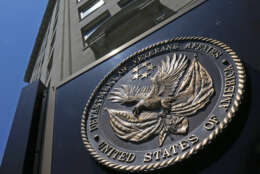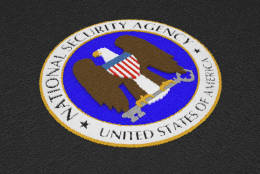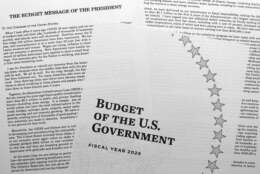Tom Temin
-
In today's Federal Newscast: The Veterans Affairs Department's Inspector General tells the Veterans Health Administration to strengthen background checks to avoid hiring disqualified people. The Navy wants a 4.5% budget increase next year, to $256 billion. And CISA is launching a new initiative to combat ransomware.
March 15, 2023 -
You could think of integrated circuits (chips), as the smallest building blocks in the nation's critical infrastructure. Recently, the National Security Agency (NSA) issued detailed guidance on keeping what it called "adversarial influence" out of microelectronics used in Defense Department systems.
March 14, 2023 -
Acquisition officials, especially in the Defense Department, worry about why the roster of would-be federal contractors seems to contract every year. Small companies in particular seem to be departing. If could be, the ever-expanding list of rules are driving them away.
March 14, 2023 -
Despite industry and government efforts, identity data theft still hits tens of millions of Americans every year. The last quarter of 2022, for example, the tally was something like 22 million. That's according to the latest breach dashboard compiled by data company TransUnion.
March 14, 2023 -
In today's Federal Newscast: A union president, representing 150,000 federal workers, is hanging up the placards. The Army's first-ever civilian CIO has new private-sector gig, dealing with the public sector. And the Office of Personnel Management is processing retirement claims faster than a fax machine.
March 14, 2023 -
Last year's Chips and Science Act spawned new programs across the government. Among them is a $500 million Commerce Department initiative known as Tech Hubs. Now Commerce's Economic Development Administration is asking the public how the Tech Hubs program might work.
March 13, 2023 -
There is little chance the layoffs that have affected some industries will affect government. If anything, agencies are hiring. But reductions-in-force have occurred occasionally over the years. If that's the case — or maybe you're just worried — what exactly are your rights and options.
March 13, 2023 -
The release of a White House budget proposal resembles nothing so much as the drop of a hockey puck. Now comes the nasty scrambling. An enacted 2024 budget will take months, and probably occur after the fiscal year starts.
March 13, 2023 -
In today's Federal Newscast: Sexual harassment is on the rise at the Naval and Air Force Academies. The Department of Veterans Affairs is looking to hire nearly a half million new employees. And 'double back pay' gets double the rejection by a federal appeals court.
March 13, 2023 -
Rhode Island officials have deployed a way to streamline identity management for businesses and individuals. It promises to make life easier for government and its constituents.
March 10, 2023 -
The National Science Foundation, as listeners of this podcast heard from director Sethuraman Panchanathan the other day, received a new billion dollars in funding from the Chips Act. To help deal with a record budget, NSF is adding a new office called the Office of Business Information Technology Services, or BITS.
March 10, 2023 -
Without using the manufacturing capacity of allied nations, the United States probably cannot fill its own national security needs. One reason, according to a study by Bloomberg Government, is the apparent shortage of skilled manufacturing labor in the U.S.
March 10, 2023 -
In today's Federal Newscast: The Cybersecurity and Infrastructure Security Agency is looking at a budget bump in the millions. The Technology Modernization Fund is in line for $200 million more in fiscal 2024. And the Agriculture Department goes in search of a better potato to make better chips.
March 10, 2023 -
A simple list of names doesn't do justice to Presidential Rank Awardees, plus GAO launches look-see into TSP snafus
March 09, 2023 -
Critics of telework often point to its limitations on collaboration. Video meetings have replaced the conference table for millions of teleworkers, but they can be annoying. Earlier, Tom Temin spoke with the D.C. deputy mayor, who outlined why the city wants federal employees to come back or have the government let go of some of its real estate.
March 09, 2023















